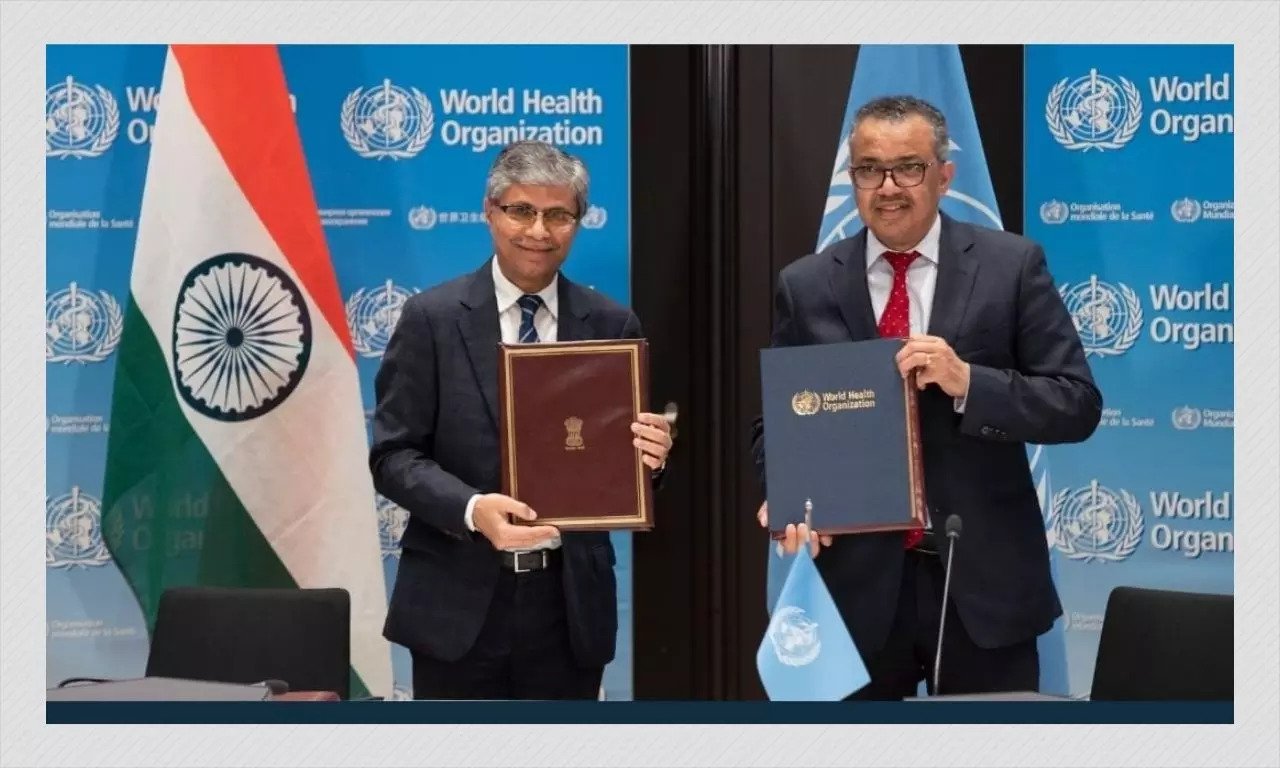
Prime Minister Narendra Modi laid the foundation stone of the Global Center for Traditional Medicine (GSTM) of the World Health Organization (WHO) in Jamnagar, Gujarat. This center will be the only one of its kind in the world. This is the reason why big experts around the world are calling it a game-changer.
Traditional medicine has been practiced in India for centuries. In every disease, small or big, people use traditional medicines and home remedies a lot. Even during the Corona period, people scientifically used traditional herbs and remedies. It also benefited them.
Now, these traditional medicines and prescriptions will be placed in front of the world. In this center being established in Jamnagar, work will be done to improve traditional medicines scientifically. Other countries of the world will also be benefited from this. It is not that only Ayurvedic medicines will work in this. Rather, work will also be done on aqua pressure, food with medicinal properties.
What did the WHO say?
PK Singh, Regional Director of World Health Organization (WHO) South-East Asia, described this center as a game-changer. That said, traditional medicines have been around for centuries. About 80 percent of the people in 170 of the 194 WHO member states use them.
"Despite the widespread use of traditional medicines, there is a lack of strong evidence, data and a standard framework preventing their integration into the mainstream healthcare delivery system," he said in an interview.
Dr. Singh further added, 'WHO's Global Center for Traditional Medicine by focusing on data and analytics, sustainability and equity, innovation and technology, and harnessing the ancient wisdom and power of traditional medicine and advancing the Sustainable Development Goals, is a great success. Could be a game-changer. It is also unique in ensuring the health and promoting well-being for people of all ages.
How can it be a game-changer?
Ayurvedic physician Dr. Somesh Pandey says, 'India's traditional medicine has a lot of power. Allopathy has captured the market, but even today most people have more faith in traditional medicine. This is the reason that everyone here takes care of minor problems at home. People take allopathic medicines for every minor problem in foreign countries. The harm of consuming more allopathic medicines is also more. Its side effects are more, but this is not the case in Ayurvedic medicines.
According to Dr. Pandey, till now only Indian people knew about traditional medicines. After the establishment of this center, it will be promoted in other countries of the world as well. Everyone will be able to take advantage of this. Especially coming with WHO will also benefit.
Specific information about the center
The WHO Global Center for Traditional Medicine is the first of its kind in the world.
Its goal is to combine the potential of traditional medicine with technological advances and evidence-based research.
The WHO Global Center for Traditional Medicine seeks to set policies and standards on traditional medicine products. It also helps countries build a comprehensive, safe, and high-quality healthcare system.
In many states of the country, normal life has been disturbed due to the rain for the last severa
In perhaps the biggest action to date, one lakh square meters area of the flow area of �
Sri Lanka Crisis: The crisis continues in Sri Lanka. Emergency has been imposed in the entire cou
Recently, a morphed video of South actress Rashmika Mandanna went viral on social media. On Sunda
PM Modi: Prime Minister Modi has a deep relationship with Tamil Nadu, 32 years old pictures surfaced
When Prime Minister Narendra Modi often talks about his old connection with a place, it has a dee
The air in the cities of Haryana has reached the stifling category. Most parts of the state have
The US has accused North Korea of secretly supplying weapons to Russia. According to the Ne
An exciting match was played between India and Pakistan in the T20 World Cup 2024. The match betw
Congress President Sonia Gandhi has become Corona infected. Apart from them, some leaders who cam
PM Modi inaugurated Atal Setu in Mumbai on January 12. Located in Navi Mumbai, it is the longest